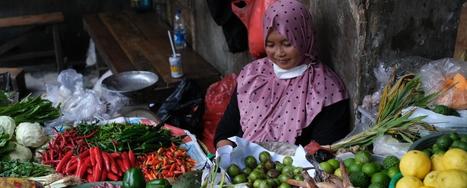As the world is becoming increasingly urbanised, urban food security and provisioning are the focus of growing attention. The inability of current food systems to meet the food demands of urban residents in sub-saharan Africa has been referred to as “the emerging development issue of this century” (Crush and Frayne, 2011, p. 6). While the literature on food security has for long been dominated by discourses on the need to increase food production, the need to consider consumers’ access to food is increasingly relevant in an urban environment where most consumers do not produce their food. Food purchased in markets represents more than 80% of food consumption in sub-Saharan African cities, compared with 50% in rural areas (Tschirley et al., 2020).
Research and publish the best content.
Get Started for FREE
Sign up with Facebook Sign up with X
I don't have a Facebook or a X account
Already have an account: Login
Mediterranean News on Agriculture, Food, Fisheries and Environment
Curated by
CIHEAM News
 Your new post is loading... Your new post is loading...
 Your new post is loading... Your new post is loading...
|










